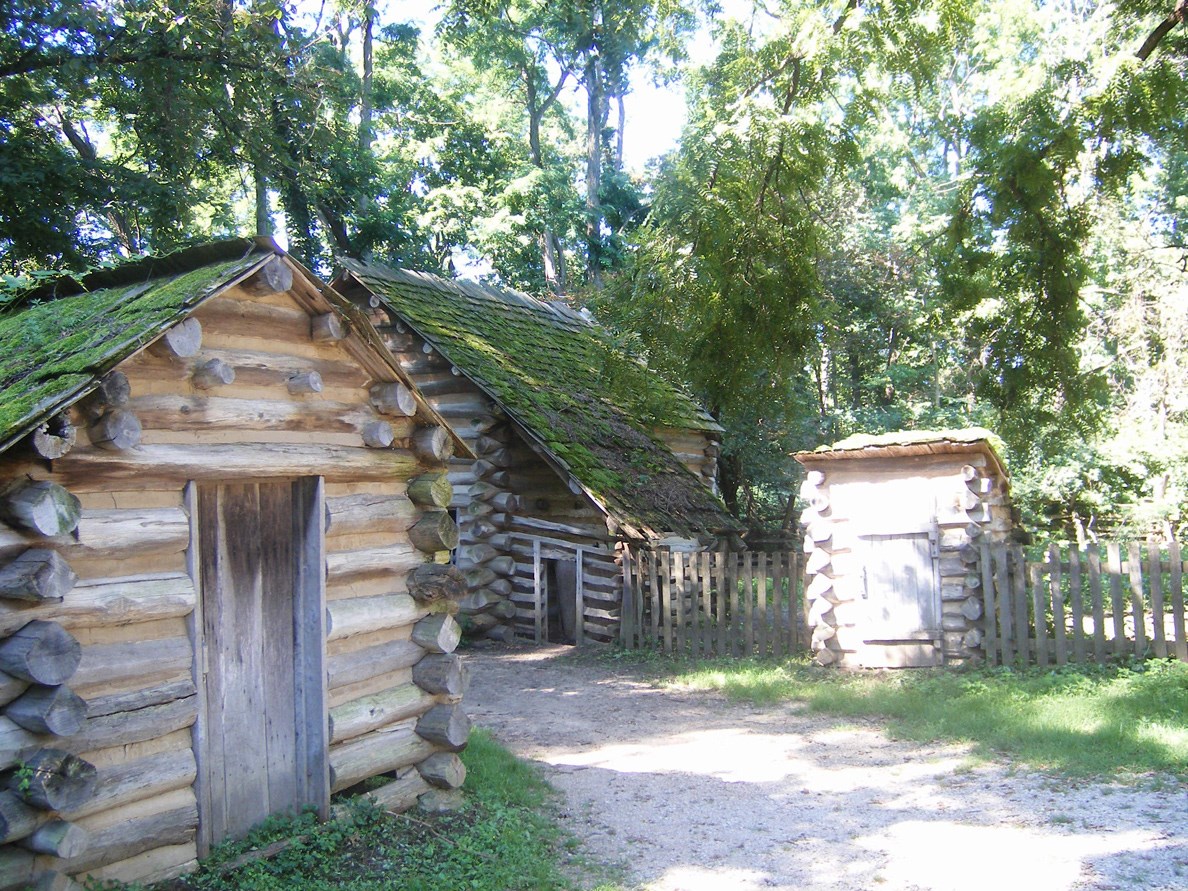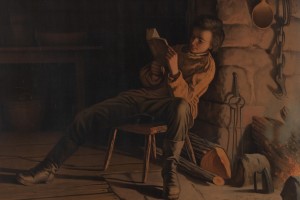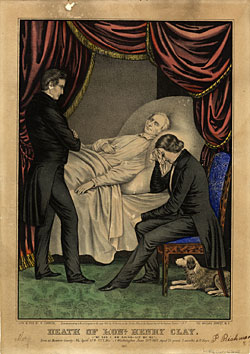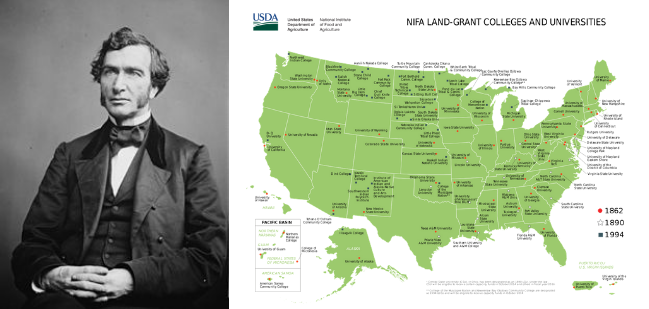
By Zach Klitzman
“I view it as the most important subject which we as a people can be engaged in.” Abraham Lincoln, on education.
In 1832, at the age of 23, Abraham Lincoln ran for a seat in the General Assembly of Illinois. He had only lived in New Salem in Sangamo County for about six months, but at the prompting of some friends who believed he would serve the town well, he joined the race for four at-large seats. On March 9th, he wrote a letter to his fellow citizens in the County so that his potential constituents could understand his “sentiments with regard to local affairs.” Though he led by describing his support of internal improvements, towards the end of the letter he reached a topic near and dear to his heart. “Upon the subject of education, not presuming to dictate any plan or system respecting it, I can only say that I view it as the most important subject which we as a people can be engaged in.” For Lincoln, it was “of vital importance,” for every man to receive at least “a moderate education,” so that they could “appreciate the value of our free institutions.” Thus, as a legislator, he promised to endeavor to make education “much more general than at present,” to better support American democracy.[1]
Unfortunately for Lincoln, a combination of his youth, lack of political connections, and prevailing political winds led to him finishing eighth out of 13 candidates. Of the four winners, three were pro-Jackson men, and the only Clay adherent like Lincoln was his mentor John Todd Stuart (Mary Todd’s cousin). Nonetheless, he won 277 out of 300 votes in the New Salem precinct where he lived.[2] (In a later autobiographical sketch, he described the 1832 election as “the only time I ever have been beaten by the people.”[3]) Regardless of the electoral outcomes, this dedication to education was something he exhibited throughout his life. Though he himself received minimal formal education, he nonetheless reiterated the importance of education in a democratic society through his words and deeds. Eschewing the argument that he turned out just fine regardless, he believed that nobody else should have such a disadvantageous start to their life.
Much has been made of Lincoln’s lack of a formal education. He succinctly summed up his educational background in 1858, when he filled out a brief biographical sketch for the upcoming Dictionary of Congress: “Education defective,” it read.[4] In total, Lincoln’s education amounted to about a one year’s worth of lessons, which one historian estimates was equivalent to a sixth-grade education, based on the content of his lessons.[5] This education only occurred in spurts when there was a schoolmaster nearby. As he explained in a more detailed autobiographical sketch in 1859, “There were some schools, so called,” that he attended, “but no qualification was ever required of a teacher, beyond “readin, writin, and cipherin,” to the Rule of Three. If a straggler supposed to understand latin, happened to so-journ in the neighborhood, he was looked upon as a wizzard.” As a result of the relatively loose standards for teaching, “There was absolutely nothing to excite ambition for education.” Instead, Lincoln had to be a self-starter, and thus “The little advance I now have upon this store of education, I have picked up from time to time under the pressure of necessity.” One reason he had such a sporadic learning experience was his rural upbringing: “I was raised to farm work, which I continued till I was twenty.”[6] His parents could not afford to pay for a tutor, nor send him away to a boarding school, so Lincoln’s education often was subservient to the demands of his family’s economic situation.
Of the education he did receive, he discovered he liked to write, and was particularly inventive with verses. The earliest verified writing of his is a series of verses he wrote in a copybook circa 1824-1826, though there’s debate if they were original or copied.[7] Since he didn’t learn much from teachers, he looked to great works of literature for instruction on writing and rhetoric. He read everything he could get his hands on, from the Bible, to Aesop’s Fables, to Pilgrim’s Progress, to Robin Crusoe, to biographies of famous people throughout history, including Parson Weems famous — if largely inventive — Life of Washington.[8]Later, he studied grammar on his own, and while in Congress, read Euclid’s books on geography.[9]

Abraham Lincoln reading by the fireplace (courtesy of Library of Congress)
Besides minimal primary and secondary education, Lincoln never studied at an institution of higher learning. He never applied nor attended a university – though after walking through a college building on the way to a debate with Stephen Douglas, he allegedly joked “At last I’ve gone through college.”[10] In addition, attending law school was a quite rare occurrence in the first half of the 19th century, as only a few such institutions existed at the time of Lincoln entering the law (and none west of Ohio). Instead, he read law textbooks like Blackstone’s Commentaries, borrowing the books from other lawyers. He also shadowed licensed lawyers, prior to taking a test to receive a law license.
Though he was personally able to overcome the lack of formal schooling, he made a point of emphasizing his wish for more fulfilling, structured learning for all Americans, in order to ensure the most informed citizenry possible. In June 1860, in response to a request for yet another autobiographical sketch, he wrote: “He regrets his want of education, and does what he can to supply the want.”[11] The following year, at a reception in Lincoln’s honor at Rutgers College, New York Herald reporter Stephen Fiske recalled Lincoln saying “Ah, that is what I have always regretted — the want of a college education. Those who have it should thanks God for it.”[12]
At the same time, as he rose in prominence, he used his well-known background to his advantage, citing it as something he had to overcome to achieve greatness. Writing to a friend in 1843 while running for the Whig nomination to Congress, he remarked that “It would astonish if not amuse, the older citizens of your County who twelve years ago knew me a strange, friendless, uneducated, penniless boy, working on a flat boat — at ten dollars per month to learn that I have been put down here as the candidate of pride, wealth, and aristocratic family distinction.”[13] Fifteen years later, in a speech during the 1858 Senate campaign against Stephen Douglas, he responded to criticism from his opponent that “this speech of mine was probably carefully prepared,” with the truth. “I admit that it was. I am not master of language; I have not a fine education.” Yet the speech still was from the heart, even if he worked hard to make it appear more refined than might appear to be natural for a man of his education.[14]
In addition to talking about his own education (or lack thereof), he discussed the abstract concept of education and its importance to American civic life. In the words of his law partner William Herndon, recollected in a letter 30 years after his assassination, Lincoln often said “that universal education should go along with and accompany the universal ballot in America; that the very best, firmest, and most enduring basis of our republic was the education, the thorough and the universal education of the great American people; and that the intelligence of the mass of our people was the light and life of the republic.”[15] Similarly, he pointed out that the democratic goal of American universal education was absent in what he viewed as oppressive governments. In a fragment of writing that dates to the mid-1850s, Lincoln wrote that unlike foreign lands, the American democratic system had “proposed to give all a chance; and we expected the weak to grow stronger, the ignorant, wiser; and all better, and happier together.”[16]
Two other specific verified speeches also demonstrate Lincoln’s views on the importance of education. In July 1852 he issued a eulogy of his political idol Henry Clay. Providing a biography of the titan of the Senate, he indicated that Clay’s early education “was comparatively limited,” though he, like Lincoln, was a life-long learner. Yet Clay’s lack of education, Lincoln stated, was “one profitable lesson,” for all to take note. “In this country, one can scarcely be so poor, but that, if he will, he can acquire sufficient education to get through the world respectably.”[17] Though one of the few times that Lincoln implied that anyone can learn on their own if they work hard enough, this statement also points to Lincoln’s belief that education is the key to long and successful career. Furthermore, in an address before the Wisconsin State Agricultural Society in September 1859, Lincoln argued that education went hand-in-hand with free labor. Discrediting the theory that educating the laboring classes “is not only useless, but pernicious, and dangerous,” he forcefully claimed “In one word Free Labor insists on universal education.”[18] For Lincoln, education was not just a pathway to success for some; it was a universal right for all.
Besides his soaring rhetoric, Lincoln also acted to make education a universal right throughout his political career. In December 1840 — after he had successfully been elected to the Illinois legislature — he proposed a resolution that all teachers who applied for state funds must pass a basic examination. He believed that education must have certain standards, clearly something that was lacking in his episodic education.[19]
Perhaps the pinnacle of Lincoln’s dedication to universal education was his support of the Morrill Act, formerly the Land-Grant College Act of 1862. This act gave each state 30,000 acres of land per congressional representative and Senator, the sale of which was to go towards the creation or supplementation of public universities. Lincoln signed the bill into law on July 2, 1862 – while he was living at the Soldiers’ Home. Today, as a result of Lincoln’s signature, there are over 75 land-grant institutions in the United States, including several Historically Black Colleges or Universities. According to historian Harold Holzer and economist Norton Garfinkle, the Morrill Act and other similar programs “were embodiments of what Lincoln believed to be government’s legitimate and vital role in building and expanding America’s middle-class economy and society.”[20] Education was a critical element of that expansive vision.
Lincoln’s views on education also played a role in his antislavery and Reconstruction policies. On August 5, 1863, he wrote to General Nathaniel P. Banks about the future of the state of Louisiana, which had come under Union control. Though he did not endeavor to tell Banks what the state must do, he had a few suggestions. Lincoln pointed out the importance of offering education to formerly enslaved children, writing “Education for young blacks should be included in the plan.”[21] A month later, in a letter to the Tax Commissioners of South Carolina – another area where the Union had regained control – he urged the rents of lands to go to education. These funds were to be set aside for both “colored youths” and “poor white persons” to attend schools.[22] These early hints at Reconstruction policy were formalized in the publication of his Proclamation of Amnesty and Reconstruction on December 8, 1863. Among other provisions, he indicated the importance of education in the new states. Any provision concerning the freed people of a reconstructed state that allocated funds to “provide for their education” “will not be objected to,” he wrote.[23] A month later, in a letter to Union General Frederick Steele, he quoted the Proclamation of Amnesty, saying that Arkansas must adopt such language encouraging funding for freedmen’s education.[24]
Lincoln stressing the importance of education fit in with his broad interpretation of the purpose of government. In his July 4, 1861 message to the specially convened session of Congress to respond to the growing Civil War crisis, Lincoln explicitly connected the Union’s mission with his belief that government should provide opportunity for personal advancement. The Union was fighting for a government, “whose leading object is to elevate the condition of men — to lift artificial weights from all shoulders — to clear the paths of laudable pursuit for all — to afford all, an unfettered start, and a fair chance, in the race of life.”[25] Clearing the path to a better world of opportunity was a key aspect of Lincoln’s life, whether via his encouragement of immigration, his defense of the right to fair and free elections, and his commitment to education.
Zach Klitzman is the Executive Administrator & Editor at President Lincoln’s Cottage.
Footnotes
[1] Roy P. Basler, ed. The Collected Works of Abraham Lincoln. (New Brunswick, N.J.: Rutgers University Press, 1953), 1:8 (hereafter “CW”).
[2] For more on Lincoln’s 1832 election, see Sidney Blumenthal, A Self-Made Man: The Political Life of Abraham Lincoln, 1809-1849 (Simon and Schuster: New York, 2016), 56-61.
[3] CW 3:511-512
[4] CW 2:459
[5] Gerald Prokopowicz, Did Lincoln Own Slaves? And Other Frequently Asked Questions about Abraham Lincoln. New York: Pantheon, 2008, 18.
[6] CW 3:511-512
[7] CW 1:1-2
[8] Prokopowicz, Did Lincoln Own Slaves? 22.
[9] CW 4:62.
[10] Allen Guelzo, “Getting Lincoln through College,” National Review, February 12, 2009, https://www.nationalreview.com/2009/02/getting-lincoln-through-college-allen-c-guelzo/.
[11] CW 4:62
[12] Don Edward Fehrenbacher and Virginia Fehrenbacher. Recollected Words of Abraham Lincoln. (Stanford, Calif: Stanford University Press, 1996), 161.
[13] CW 1:320.
[14] CW 2:491
[15] Fehrenbacher 244.
[16] CW2:222.
[17] CW 2:124.
[18] CW 3:480.
[19] CW 1:214
[20] Harold Holzer and Norton Garfinkle, A Just and Generous Nation: Abraham Lincoln and the Fight for American Opportunity. (New York: Basic Books, 2015), 78.
[21] CW 6:365.
[22] CW 6:456.
[23] CW 7:55.
[24] CW 7:141.
[25] CW 4:428.



